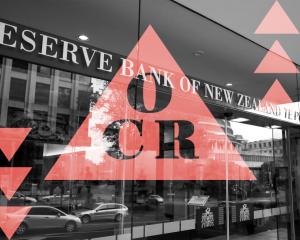
Where do New Zealanders most want to work? According to Randstad's latest survey, it's still Air New Zealand.
The airline has come top of the table eight times by its measure, and now two years in a row.
The top three this year also included the Department of Conservation and the New Zealand Customs Service.
PriceWaterhouseCoopers (PwC) and WSP were in fourth and fifth place. PwC had moved up from 44th place last year.
The professional services were named the most attractive sector for employment, followed by tertiary education and information and technology and telecommunications, tied for second.
The public sector dropped to eighth place from third last year - a move Randstad said was probably not surprising given the job losses happening in that sector.
Massey University marketing expert Bodo Lang said there were a couple of reasons that Air New Zealand did so well in the survey.
"First, the tourism industry and particularly our national carrier tend to have strong appeal as places to work as because would-be employees base their assessment on their experience as customers of those services.
"Most people value going on holiday and nobody goes on holiday without wanting to do so. As a result, consumers' positive impression of holidays in general and tourism operators, such as Air New Zealand, cause some consumers to have the expectation that working for Air New Zealand would be 'sort of like being on holiday'. "
He said that was naïve and the perks at the airline were not what they used to be.
"Service providers in the tourism industry often have to battle with high staff turnover because of high expectations by tourists and poor conditions, such as pay, by service providers."
He said the Air New Zealand brand was also strong.
"Not all national carriers and airlines are held in high esteem. The becomes obvious when comparing Air New Zealand with, for example, other airlines such as Air Canada or United Airlines. These airlines have much weaker brand equity than Air New Zealand. That is, they are not as viewed as positively as Air New Zealand and they are not positioned in consumers minds as uniquely as Air New Zealand.
"Think 'safety videos' as just one example of how Air New Zealand has been innovative and made a mandatory Civil Aviation requirement a brand differentiator. Air New Zealand's brand is therefore also a great differentiator for people who work there or have worked there. In that sense, Air New Zealand's brand equity rubs off on those who have worked their and that is a strong advantage when wanting to attract exceptional talent."
He said Air New Zealand also had a strong customer focus that felt authentic.
"Building such a strong internal service culture will appeal to some consumers and make them think that Air New Zealand would be a good place to work. After all, people, regardless of whether they are consumers or employees want to have a sense of belonging and Air New Zealand is likely to provide this important psychological benefit, thus making it an attractive place to work."
But while employees might wish to work at those firms, the survey showed that many people were staying put.
Almost two-thirds of survey respondents said they would stay with their current employer rather than looking for better pay elsewhere.
"These are challenging times and risk-averse Kiwis are hunkering down to manage the cost-of-living crunch, opting for income certainty over pay increases," Randstad country director Richard Kennedy said.
"In many sectors, employees are worried about their jobs which is fuelling workplace anxiety and stress levels that leads to productivity issues. To maintain business continuity and keep the lights on, strong yet empathetic leadership is needed along with transparent communication that builds understanding, trust and loyalty. All hallmarks of enduring employer brands.
"Organisations that can do this well, will be in a much stronger position to retain their people and manage through the current downturn."
He said one in two people who responded to Randstad's survey said that promotions were not necessarily given to the most deserving candidate.
Employees rated work life balance as the most important consideration in their choice of employer, followed by attractive salary and benefits and good training. Equity was cited this year as a consideration for the first time.
"Everyone wants a good salary and benefits, that's a given. But what's interesting is when you dig deeper into what else is driving the decision-making process when choosing one employer over another. Ultimately, workers want to work for organisations whose values align with theirs and for many in today's workplaces, equity, meaning where everyone is given equal access to the same opportunities, is seen as non-negotiable when choosing where to work," Kennedy said.
The top 10
Air New Zealand
Department of Conservation
New Zealand Customs Service
PWV
WSP
Beca
Coca-Cola
Victoria University
Ministry of Business, Innovation and Employment
EBOS













